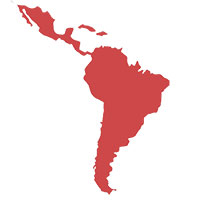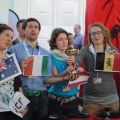COP20, And So It Begins
Evan Weber | December 2, 2014.
Yesterday saw the start of the latest round of the UN climate talks, COP20, in Lima, Perú with traditional outgoing remarks from the former Polish COP19 President Korolec and a welcome from Manuel Pulgar-Vidal, the incoming President, and Peruvian Minister of the Environment.
In his opening remarks, Pulgar-Vidal highlighted the wave of momentum over the last couple of months — the new commitments and initiatives emerging from the UN Climate Summit in New York, the EU 2030 package and US-China emissions deals, and the initial pledges to capitalise the Green Climate Fund (GCF).
The GCF has already cast unfamiliar airs of hopefulness and potential for breakthroughs over this year’s negotiations. Pulgar-Vidal also made sure to contextualise this progress in the context the stark findings from this past year’s AR5 synthesis report on the latest climate change science from the Intergovernmental Panel on Climate Change (IPCC) and the monumental task that negotiators are faced with in Lima: setting the stage to ink a new global climate agreement next year in Paris.
Notable in Pulgar-Vidal’s speech was an announcement of an effort to make COP20more open and transparent than previous conferences, with a space for high-level dialogues between parties and non-state actors. This commitment was demonstrated later in the opening plenary by yielding time early on for interventions by the gender, youth, and other civil society constituencies rather than at the end, where their time is often cut short.
After further remarks from Executive Secretary of the UNFCCC, Christiana Figueres; the Mayor of Lima, Susana Villarán and Peruvian President Ollanta Humala also added to the formalities.
On behalf of the G77+China, the Bolivian delegate criticised what they viewed as, still, low ambition in mitigation goals from developed countries, while cautiously welcoming the initial pledges to the GCF. Much of his speech was spent underscoring the importance of technology transfer from developed to developing countries in realising ambition in mitigation expectations from the developing world and in aiding adaptation goals.
Bolivia also urged for the full ratification of the Doha Amendment, a new commitment period for the Kyoto Protocol, by Annex I countries as being essential for a global agreement in Paris. Only two Annex I countries have ratified the Doha Amendment to date.
Australia, for the Umbrella group, noted that Lima must pave the way to Paris. He acknowledged the importance of transparent Intended Nationally Determined Contributions (INDCs) in establishing an effective review process for pledges, and called for a truly global agreement that acknowledges the increased share of emissions that now come from the developing world. The EU echoed these sentiments.
Speaking on behalf of the Environmental Integrity Group, the climate envoy from Mexico further emphasised the importance of finance, while agreeing with the Umbrella group on the need for transparency schemes to assess the significance and impact of INDCs pledged in the lead up to Paris.
The day also marked the largest global #FastForTheClimate to date, a campaign started last year by Nadarev Yeb Saño of the Philippines to show solidarity with those already suffering from the impacts of climate change in the wake of the devastation that Typhoon Haiyan caused his country. Many representatives from civil society participated in the fast, as well as the government of Tuvalu and over half of its residents. As we reported yesterday, Yeb has notably been absent from the negotiations thus far.













comment